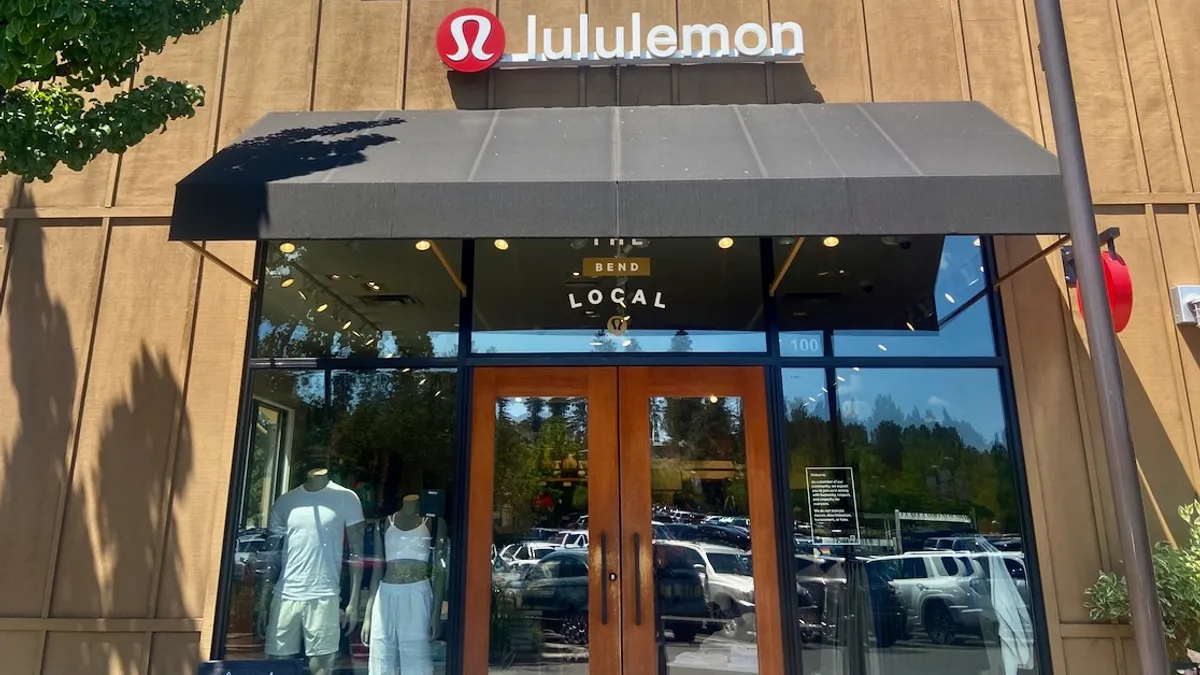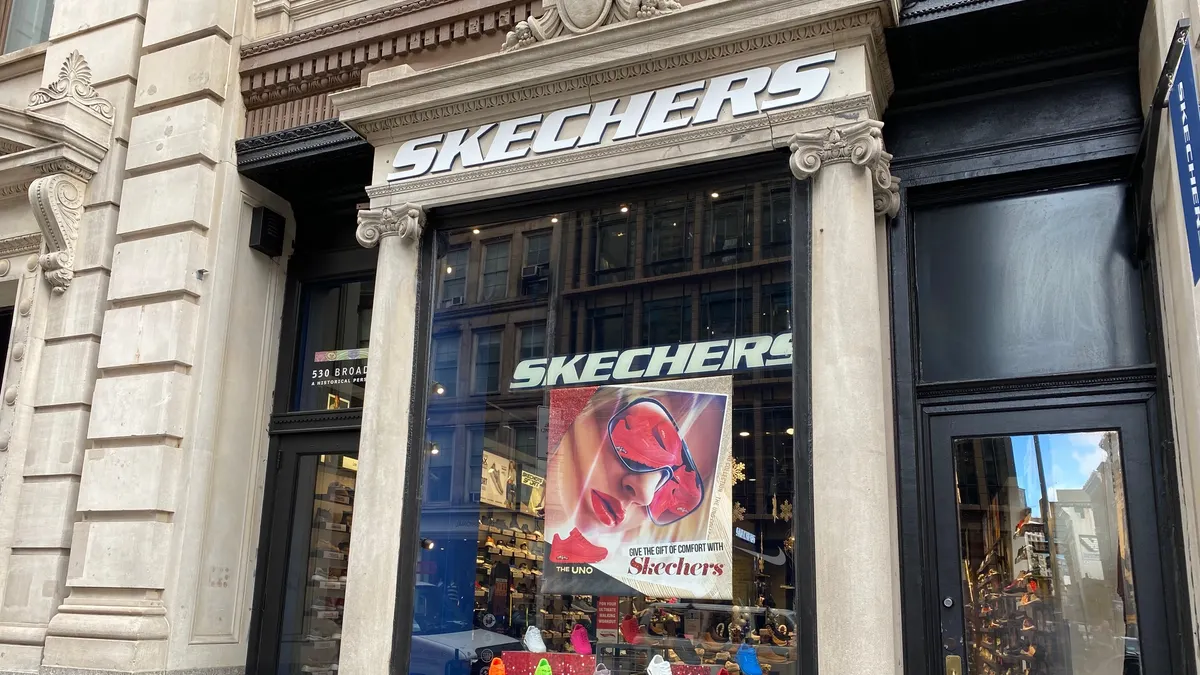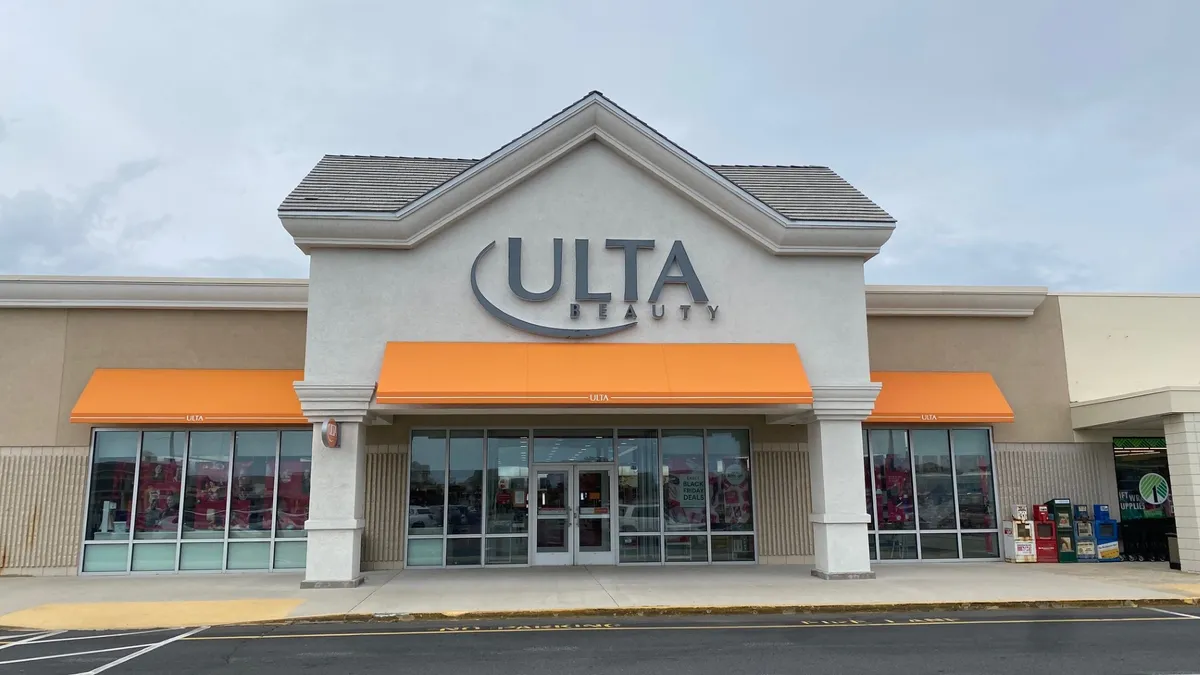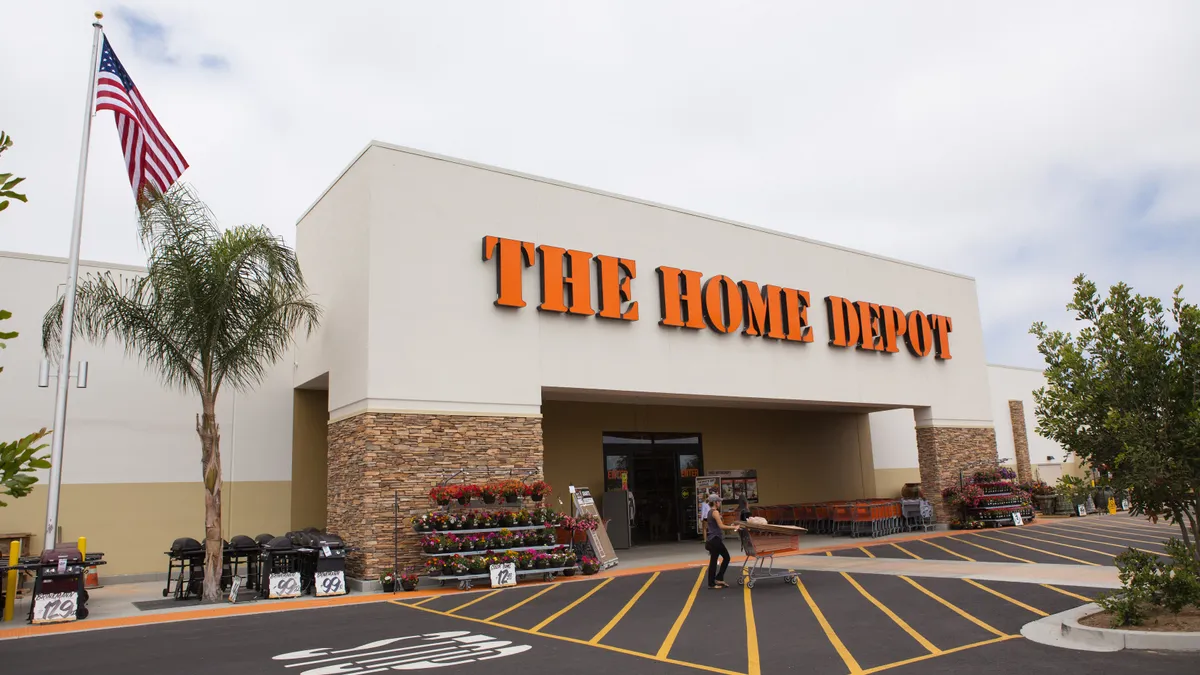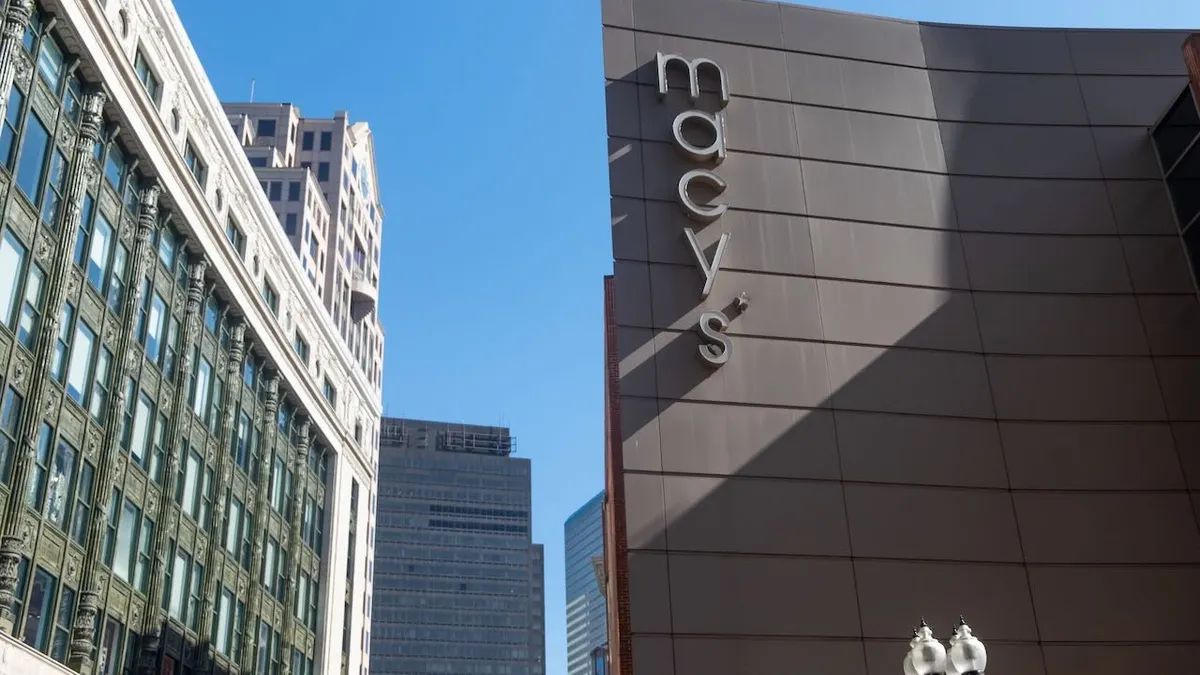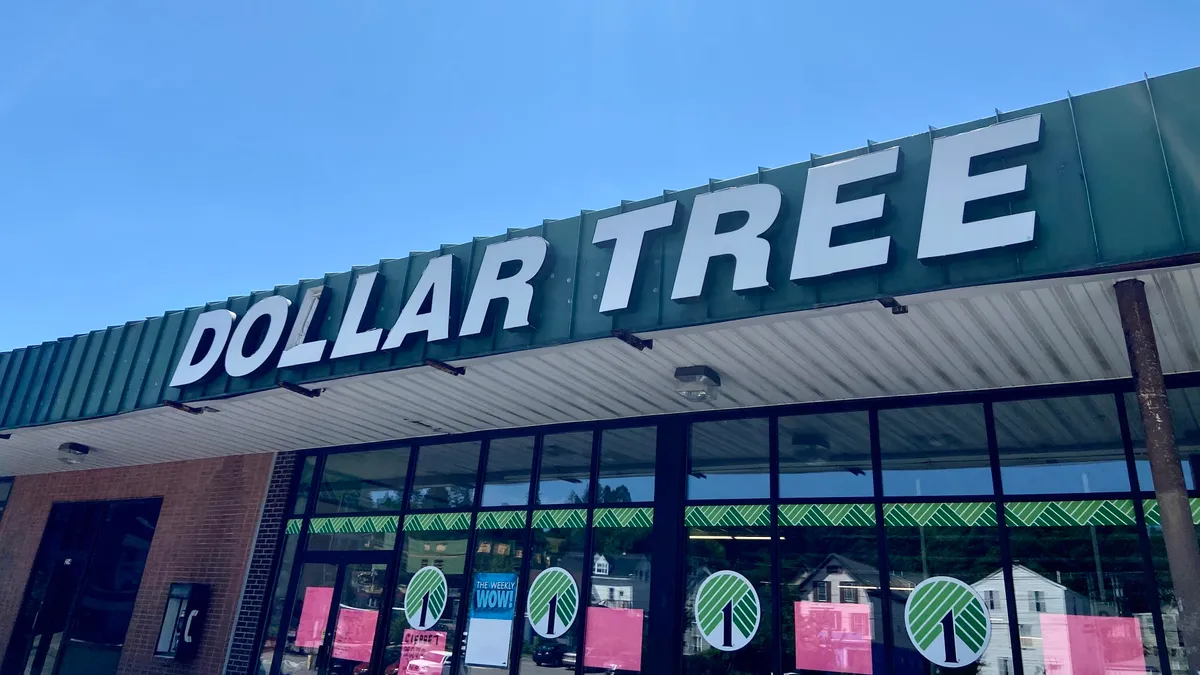The next few weeks could determine the ultimate fate of Bon-Ton stores.
When the department store retailer filed for Chapter 11 early in February, it had no clear path out of bankruptcy. Or rather, it had a few.
The company said after filing that it would try to draw a buyer, while also planning to close more than 40 stores and pursue a reorganization.
Meanwhile, the retailer has been flanked in court by a group of bondholders that have been clamoring for asset liquidation to pay off lenders.
On Monday, Bon-Ton went to court to establish the rules for an auction of its business and assets. Whether a bid comes — one that that satisfies the court and the most powerful among Bon-Ton's stakeholders — could determine if Bon-Ton survives as an ongoing concern or is forced into liquidation, like so many bankrupt retailers before it. If that happens, Bon-Ton would be the first department store chain to fully liquidate in years, according to S&P Global.
At the hearing, the federal bankruptcy court in Delaware overseeing Bon-Ton's bankruptcy signed off on the proposed process to sell Bon-Ton's business and assets. The plan sets a March 19 deadline to designate a stalking horse bid (an initial bid negotiated by the bankrupt company) and an April 9 date for the auction of Bon-Ton.
David Wander, chair of Davidoff Hutcher & Citron's bankruptcy practice, told Retail Dive in an interview Friday, "What appears to be happening in this case is that a potential acquirer, instead of just being a single entity, would be a consortium of vendors and a financial player."
Wander added on Tuesday that there "appear to be two vendor groups doing due diligence" ahead of possible bids for pieces of the business. Saks, owned by Hudson's Bay, could also play a role as it would be affected by Bon-Ton closures in about half a dozen stores, according to Wander. For now, he said, bids for large groups of stores and assets appears more likely than a stalking horse bid for Bon-Ton's business as a whole.
These potential bidders would likely hold onto a store base of 150 to 175 stores, Wander said. "There's a lot of good [Bon-Ton] stores that are EBITDA positive," he said. "I believe there's a good business there. I think there's a business to save."
In court on Monday, others echoed that sentiment. Robert Feinstein, a partner with Pachulski Stang Ziehl & Jones representing the creditors' committee said, "Bon-Ton is a good company, it should reorganize."
But not everyone agrees. In a February filing, a group of second lien bondholders said that "the best and only available path for the debtors to maximize value for their creditors in these free-fall bankruptcy cases is to conduct an immediate orderly liquidation of the debtors' inventory and other assets."
Those weren't even the harshest words that the bondholders had for the company. In the filing, the group decried the "mammoth overhead costs" of keeping Bon-Ton open through the bankruptcy process and said, "These payments are supported only by a hope that a miracle suitor will emerge now that the debtors have filed for bankruptcy."
They added that Bon-Ton's "survival is, at best, uncertain and in reality, unlikely."
Now in an added twist, the bondholders, together with liquidator Great American Group, plan to make their own bid for Bon-Ton — to liquidate the company, according to Sidney Levinson, an attorney with Jones Day representing second lien noteholders.
A bid to save, a bid to liquidate
Levinson, according to a recording of the hearing, told the court Bon-Ton declined to discuss taking on the bondholders' bid as the stalking horse. The bid would pay off the company's bankruptcy loan, cover up to $60 million in wind-down costs and provide a credit bid of up to $100 million, Levinson said.
He added that the retailer told them they would "exhaust every going concern alternative" over the second lien holders' bid, which contemplates liquidation.
In February, the second-lien group argued that Bon-Ton had already tried and failed to line up a suitor ahead of filing for bankruptcy, which could portend a poor chance of winning a high-value bid in bankruptcy.
James Baird, one of Bon-Ton's financial advisers with PJT Partners, said in a court filing that between November and early January, his firm went to 38 "potentially interested parties" about an acquisition, without a specific proposal drawn up. Just seven of those the firm approached signed confidentiality agreements to begin a due diligence process. By the time of the filing, the talks hadn't produced any formal interest, though Baird said some parties wanted to keep talking.
But that doesn't mean Bon-Ton couldn't find a buyer in bankruptcy. In fact, as Philip Emma, a retail analyst with Debtwire, pointed out in an interview, Bon-Ton's prospects for attracting an acquirer have likely brightened since filing.
"If you're buying out of bankruptcy, you can buy a cleaner business," Emma said. That's especially true for retailers, which typically shed unprofitable stores during a Chapter 11 process that allows them to exit leases more quickly and cheaply than they could otherwise, Emma pointed out.
"Corporate operators don't like to buy problems. It's a diversion of management's time," he said. "If people viewed it as an inevitability that it would file for bankruptcy, it makes more sense just to wait [until the company files]."
The consortium of prospective buyers that Wander alluded to could mean there is real interest in Bon-Ton, but details of any bid have yet to be disclosed, and it would still have to clear an extended, complicated court process.
Mounting troubles
Under the leadership of Max S. Grumbucher, who served as CEO of Bon-Ton in the 1980s and 1990s, the retailer was essentially debt-free. "Bon-Ton was very much a family business," said Richard Mader, who was brought into Bon-Ton during the 1980s to modernize its inventory systems and had worked with both Max and his son Tim, who took over the company from his father.
With Max (who died in 2006) at the helm, the chain grew slowly with money raised through its operations rather than credit, Mader said. After Max handed the reins to Tim, the company took on debt to finance expansion, as it bought out several of its fellow regional department store chains.
During this time, Bon-Ton acquired a host of other nameplates with the oldest, Carson's, tracing its lineage to 1854. Before filing for Chapter 11, the company operated some 260 stores under the banners Bon-Ton, Bergner's, Boston Store, Carson's, Elder-Beerman, Herberger's and Younkers.
Today the retailer remains relatively small compared to its peers, with some $2.6 billion in sales. It's also among the very few regional department stores left after years of consolidation and closures.
In recent years Bon-Ton has faced declining sales, profit losses, executive turnover and panicking suppliers. The retailer's balance sheet problems turned into a crisis in December, when Bon-Ton missed a $14 million interest payment on a group of bonds. And just when Bon-Ton needed a big win during the holidays — which of late has been the only period during which the retailer generates cash from operations, it posted a comparable store sales decline of 2.9%, Emma pointed out. Total sales also dropped, to $752.1 million, down more than 4% from the year-ago period.
After negotiations failed to produce an agreement to restructure the company's debt, Bon-Ton filed for bankruptcy in February with commitments for debtor-in-possession financing.
Who will take on the risk?
Even as some scramble to save the retailer, Bon-Ton's long history is at risk of ending in the coming weeks.
The company effectively has two options left, according to Wander: buyout, or liquidation.
An independent reorganization would have required new capital, according to Debtwire's Emma. "They would have had to find a third-party sponsor to back it in bankruptcy. Somebody was going to have to put money into it to fund a plan of exit," he said. "There's not enough value in the Bon-Ton estate without somebody putting more capital into it."
All of which means the Bon-Ton the world has known — a largely family-owned and controlled company — is "de facto gone," according to Emma.
What remains to be see is who might take it over its operations, or if the operations will be forced to shutter without a viable buyer.
As the authors of a recent report from CreditRiskMonitor, a bankruptcy risk tracking service that had its highest risk rating attached to Bon-Ton last year, put it: "Bon-Ton now needs to secure new equity to make it through the restructuring process, yet it remains uncertain if there is a party willing to take on that risk. If Bon-Ton fails to structure a deal, the bankruptcy court could flip the decision back in favor of liquidation."
The Sports Authority bankruptcy — which started as an effort to revive the retailer through Chapter 11 and ended with complete liquidation of the business — loomed large over Monday's hearing and was mentioned by more than one attorney involved in the Bon-Ton hearing.
Ultimately, U.S. Bankruptcy Judge Mary Walrath overruled objections to the bid process and opened up a path for a savior to rescue the company.
In response to Levinson's objections, she noted that the highest-dollar bid is not always the best for all stakeholders — among them employees and landlords.
At the hearing, Walrath also acknowledged concerns that Bon-Ton's fate in bankruptcy could "go south."
"The debtors believe that a reorganization is in their best interest and will realize maximum value, and we will wait and see who is right on that," she said.







